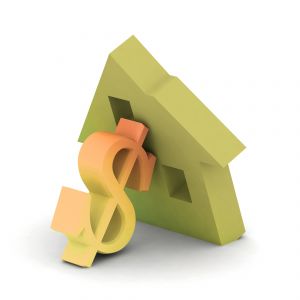
We haven’t met a person yet who likes paying a mortgage. Both homeowners and investors who don’t pay for properties via all-cash offers have to deal with mortgages. No one likes them. In the years since the market crash, mortgage rates bottomed out to an all-time low, making it an ideal time for investors to snatch up properties and bring some life back into the real estate market. They did, giving the market the boost it needed to get back on its feet.
Looking forward to 2015, however, real estate experts expect rates to rise to 5% next year and 6% in the next two years, putting rates at the highest point they’ve been since the market crash. While that’s hardly the highest they could be, the real estate market is still in the middle of recovery, which could mean another slowdown if lenders don’t play it smart.
How will rising mortgage rates affect real estate investors and others in real estate?
3 Things Rising Mortgages May Do to the Real Estate Market
Unchecked, it could damage housing recovery.
Rising mortgages have the potential to be a setback in housing recovery. The problem will come if, when they go up, lending standards don’t change to reflect it. The problem is that in hot markets where competition is already steep and inventory is low, the combined cost of home buying could push even more people out of the market and be detrimental to home sales. Even in promising markets, like Dallas, continued strength is very dependent on whether or not lenders loosen their standards to compensate for higher home buying costs.
The current state of the economy means that even the smallest of increases in affordability could be devastating to would-be home buyers. Banks say they’re going to increase lending, but they have to keep their end of the bargain if the housing market is going to survive the rise in mortgage rates.
Affordability decreases.
Expanding upon the obvious point that rising mortgage rates impact affordability, how does that affect real estate investors? It all depends, really. If lenders start accepting more loans, we’ll continue to see growth in healthier markets, such as Dallas and Houston, with competition remaining high. It would still put these two Texas markets as some of the best places for home buyers. Should lenders be stingy, however, the decrease in affordability will exclude many, particularly millennials who already have difficult being approved for a mortgage, from becoming homeowners.
While in the short-term this could bring more people to renting as an alternative when they can’t afford to buy, in the long term a lack of affordability will do nothing but hurt the real estate market. The best case scenario would include home buyers taking the leap before rates get any higher, but that would only cause a short-term spike in home sales.
For real estate investors, increasing mortgage rates means that buying new properties will call for more deliberation. If fewer people can afford to own homes, demand decreases. On an already tight inventory, that could help bring some balance — but real estate experts still expect home prices to continue to rise. In the two big Texas real estate markets, home prices are expected to outpace the national growth rate.
In the end, it all hinges on the lenders.
Related Article: The Real Estate Market Must Match Workforce Improvement
Lending standards may loosen.
It’s been notoriously difficult for many to obtain loans for housing in the past few years. With the rock-bottom mortgage rates of the last several years, banks were being very, very selective with their lending. This in itself posed a big barrier to would-be home buyers. If banks adjust to rising mortgage rates and actually increase lending, it could balance out the issue and keep the real estate market on track.
More lending means more people have the option to buy homes. At the end of the day, that’s good!
For real estate investors, don’t fear that renting will go away if home buying continues to increase. It won’t. However, we still must play close and careful attention to the state of the market. Mortgage rates affects our buying habits, our rent costs and the way we tackle our business.
2015 is going to bring changes in the housing market — how are you going to handle it? Share your point of view in the comments. At the same time, we would love to have a conversation with you about the Memphis real estate market, the Dallas real estate market or the Houston real estate market.












